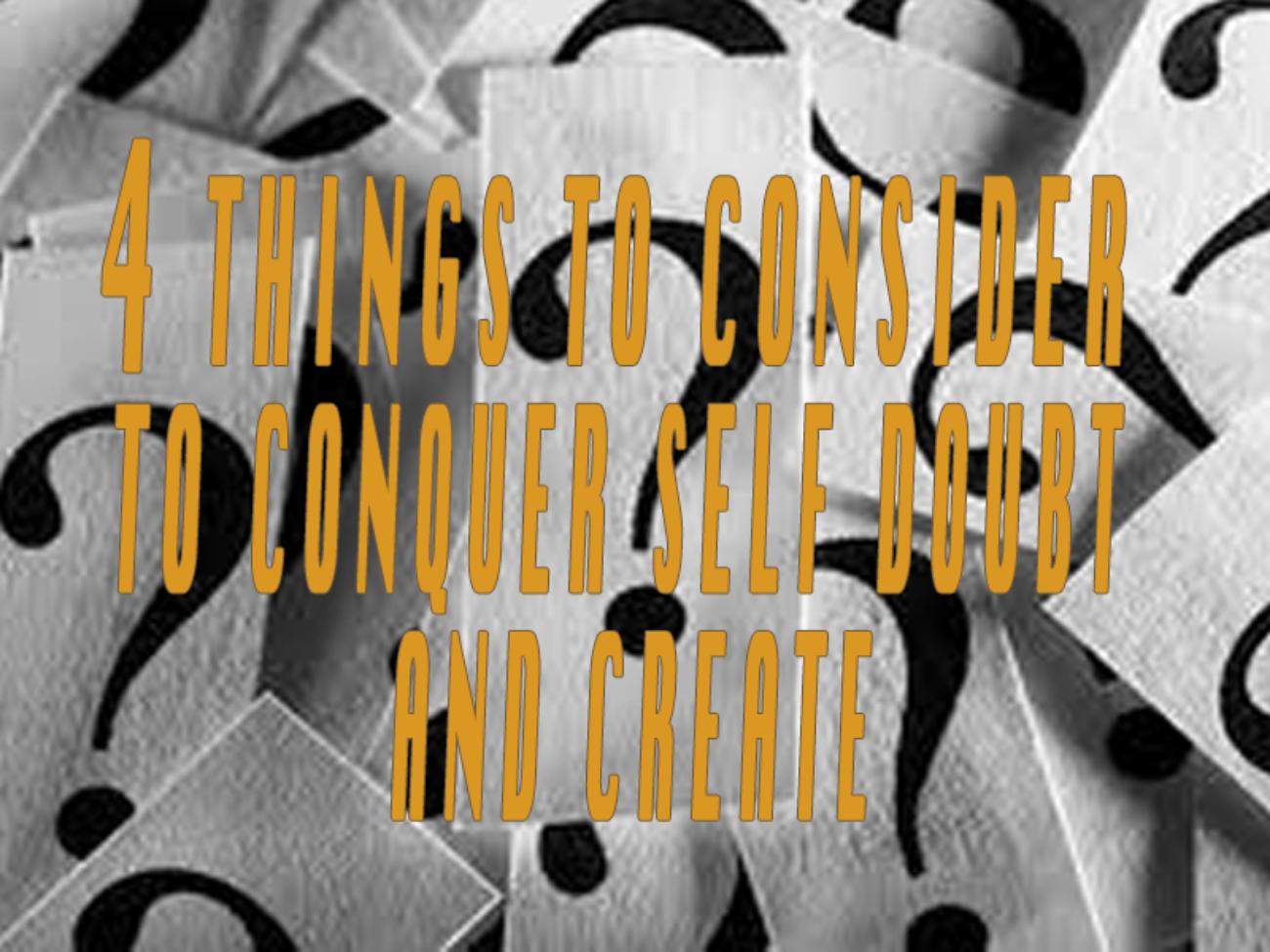Achickwitbeatz presents the Instrumental Intel podcast, bringing you information instrumental to your artistic career including music industry news & tips, insights & interviews, and beats for your inspiration. Listen on Saturdays at 7 pm EST on Grander Radio and Achickwitbeatz.com.
Follow on Facebook, Instagram, Twitter, YouTube Audiomack & SoundCloud, and subscribe on your favorite podcast platform. Download the Grander Media app to listen to Grander Radio on the go.
- Art
- Independent Labels
- Internet Radio
- Music Documentaries
- Album Reviews
- Music History
- Music Industry News
- Free Game Friday
- Free Downloads
- Poetry
- Books
- Interviews
- Did You See It?!
- Hip Hop History
- Hear Here
- Music News
- Hip Hop Documentaries
- Music Marvels Radio Show
- Think Piece Thursday
- Mini Documentaries
- Instrumental Intel
- Music Humor
- Indie Analysis
- Conversations & Quotables
- Music
- Resources for Artists
- Podcasts
- Beats/Instrumentals
- Music Education
00:01
Hey, thank you so much for tuning in to Instrumental Intel. I'm your host, music producer, Achickwitbeatz, and I'm excited to be bringing this episode to you. I've got music industry news highlights. I've also got beats that I've produced for your inspiration. And later, my special guest, Christen Eve, will be joining me. We'll be talking about defining success beyond mainstream fame and so much more, so make sure that you stick around.
00:24
So before I go ahead and drop that first beat, I gotta give a shout out to my home station, Grander Radio out of Grand Rapids, Michigan. And with that, let's go.
11:39
Alright, as promised, I'm back with the music biz brief. First up, Spotify is relocating parts of 250 Sweden-based roles abroad after a court ruling denied their request to allow engineers to work night shifts. Spotify's HR chief criticized Sweden's outdated bureaucracy, quote-unquote, saying that it threatens the country's position as a tech hub.
11:59
The court upheld Sweden's ban on night work, except for key sectors like healthcare or transport. As a result, Spotify says future engineer recruitment will primarily happen outside Sweden, though no jobs have been lost. The company stresses the need for 24-7 support to maintain its global platform for creators and listeners.
12:19
Next up, Spotify is expanding the beta test of its music video feature to 85 more markets globally, offering premium subscribers access to a limited catalog of videos from artists like Doja Cat, Ed Sheeran, and more. However, the US and Canada are not included in this rollout. The new feature allows users to seamlessly switch between audio and video with a switch to video toggle. First launched in March, the music video feature will now reach 97 markets, with more areas to follow soon.
12:47
Premium users can check availability by looking for the toggle on supported tracks. Alright, YouTube has launched its Autumn Refresh, introducing over two dozen new features across its services. Notable updates for musicians include enhanced collaborative playlist options, allowing users to create and share playlists with personalized artwork, including AI-generated images. Later this year, fans will be able to vote on videos within playlists, potentially letting artists engage with their audiences more interactively.
13:15
Additionally, YouTube is introducing gamification elements with badges for superfans, celebrating milestones like being among the first paid members of a creator's channel or top listeners of favorite artists. Next up, recent reports of a sharp decline in US vinyl sales for 2024 are being challenged by the Vinyl Alliance. Billboard's data showed a 33.3% drop in sales, but the Vinyl Alliance claims this is due to changes in how Luminate, which is Billboard's data source, reports physical media sales.
13:44
The alliance argues that the accurate year-over-year comparisons aren't possible under the new model. In fact, adjusted figures suggest U.S. vinyl sales have actually grown by 6.2% so far in 2024. This aligns with the RIAA's Meteor Report, which showed a 10.7% increase in vinyl sales and a 17% revenue boost.
14:05
So if you've been a long time listener, you know when we've actually talked about how the reporting was going to change things and make it look like sales were lowering. Seems like many people have forgotten about that, so yeah watch out before you hit that share button on that initial report because it's not exactly as it seems. Ticketmaster is facing a proposed class action lawsuit after a hacker group, Shiny Hunters, breached its database in April, exposing the personal information of up to 560 million customers. The breach?
14:33
which included names, addresses, credit card details, went undetected for nearly two months, and impacted users weren't notified until four months later. The lawsuit accuses Ticketmaster of negligence failing to implement proper security measures and not ensuring its cloud vendor Snowflake protected users' data. This attack is part of a broader trend of cyber attacks targeting media and telecom companies, with Ticketmaster now facing potential damages of at least $5 million.
15:00
Live Nation's CEO recently voiced support for cap-and-ticket resale prices in the U.S., proposing a 20% limit on resale markups. Speaking at Bloomberg's Screen Time conference, he explained that while Ticketmaster once profited from resale, growing criticism from artists and fans led to a shift.
15:16
Live Nation now supports artist control over ticket reselling and favors regulation of secondary markets. He also highlighted ongoing changes with bots targeting ticket sales contributed to overpriced resale and platform issues, such as during Taylor Swift's 2022 ticket fiasco.
15:33
Alright, Triller has finally gone public after merging with AGBA, debuting on Nasdaq under the ticker symbol ILLR. Despite the hype, Triller's stock dropped 20% and the company's market cap is now around $705 million, far below the initial $4 billion target. Their financial issues persist, including $23.6 million in unpaid music licensing fees. Independent artists may want to keep an eye on how this affects the platform moving forward.
15:59
Alright, next Universal Music Group has fully acquired the independent music powerhouse, I believe it's Pius. I didn't realize until now that I've never actually said it out loud, but they're buying the remaining 51% of shares. So this includes Pius' label service division, Integral, which will merge with UMG's Virgin Music Group.
16:17
while Pius Label Group will remain an autonomous division. Its co-founder Kenny Gates will stay on as CEO, continuing the 40-year commitment to supporting independent artists. Despite the ownership change, Pius assures its artists and partners that its values and operations will remain intact. Hopefully that's actually how that goes. All right, and finally, Apple Music has launched a new feature called SetList that allows artists to create playlists from their concert setlists to promote live performances.
16:45
This feature integrates with bands in town, helping artists to share their concert experiences and upcoming tour dates. Artists can easily assemble playlists for individual shows or entire tours, which will be published on their Apple Music and Shazam profiles. The tool allows for social media sharing, accommodating cover songs and collaborations. Set lists aim to strengthen the connection between artists and fans while providing valuable promotional tools for independent artists.
17:10
Alright, I'm gonna take a quick pause for the cause, and then right after that, I'll be back with my special guest, Christen Eve, to discuss defining success beyond mainstream fame and more. Keep it locked.
28:19
Hey, I'm Achickwitbeatz, multi-genre music producer and strategist to indie artists and labels. Visit achickwitbeatz.com for resources for artists and instrumentals in various genres available for songs, blogs, blogs, podcasts, themes, TV, film, commercials, and more. Once again, that's achickwitbeatz.com. That's A-C-H-I-C-K-W-I-T-B-E-A-T-Z.com
28:46
Let's make something happen. Thank you so much for tuning in to Instrumental Intel. I'm your host, music producer, Achickwitbeatz, and I'm excited, thrilled, and delighted to say that I have in the virtual building with me today, Kristin Eve. I'm so glad to have you on the podcast. Thank you for taking time out of your busy schedule to share your story and wisdom with us. And so if you could, you know.
29:13
There's some people that kind of followed me over from Music Marvel, so they may be familiar with you, but got a lot of new listeners. So if you could just kind of give them a little bit of background as to who is Christen Eve and how you got involved with music. Thank you. First of all, thank you for having me. I'm really excited to be here. Yeah, so my name is Christen Eve. I have been a singer songwriter since I was 13. I, at that age, fell madly in love with writing music.
29:43
same age I started playing guitar and truly since then it has been the one constant in my life. Like other things have fallen away, other hobbies, other interests, but that has been the one constant and ever since then there hasn't been one year that I haven't consistently written music and just continue staying passionate with my music.
30:06
You know, that's interesting. You said there's other hobbies that have come and gone, but that one stays constant. And I think that a lot of people listening can probably relate to it because a lot of times on social media, you'll see people get frustrated and, you know, they might say, I quit, but then glad times come right back. But, but yeah, with that being that constant, especially to be able to continue to write songs consistently, what do you kind of do to get in that zone?
30:36
everyone's been going through since the pandemic, but how do you kind of keep that in the forefront and still make sure that you sharpen your craft as you will? So I've definitely had seasons where I've had writer's block, you know, I've definitely come and gone from that space, but as far as writing music itself, I think the reason it's always stayed a constant in my life is because it truly does feel like it's a part of me, almost like...
31:04
Like, you know, if you believe in coming to Earth or not, like, I came to Earth with that being, like, stitched into my soul. Like, it's truly a part of me. And it's... When I have gone through anything in my life, anything hard, any dark chapters, it's always songwriting that I turn to. So for me, I kind of get into that space naturally because it is always the first thing I turn to. No matter what I've been through in my life, I feel like...
31:32
writing music is just always has always been there for me. And I think because at such a young age, I started turning to it when I would go through hard things. It just became my normal. It makes so much sense. Yeah, I think a lot of times as we introduce our art to more people, it can be kind of easy to forget that it's also therapeutic. And so I wish I could remember
32:02
artist that had said it. But basically the quote was pretty much saying that when you suffer writer's block, it's not really that you're blocked. You just don't want to write what it is you're supposed to write about. And I know like I've been there quite a few times like, Oh man, you know, got all this stuff on my mind. I don't really feel creative. But just like you said, it's like you don't really start to feel better about it until you write it down. You know, kind of get it out. It's, it's, yeah.
32:32
So yeah, singer-songwriter, that's a great duo. A lot of times people can do one or the other, not both. Do you feel like as far as singing, is that kind of part of that same thing that you know is just in you, and you just gotta do it, or is it a little bit different from songwriting? Yes, yes and no. I do feel like, because singing has always been a part of my life since I was a little kid, singing in church, stuff like that.
32:59
And then obviously I got to an age where the adults around me started noticing, oh, she can really sing. She has a voice. So then just the fruits of that as I pursued that more, I do feel passionate about both and I do feel like they are a part of me. And I, it's very important to me to express myself in both ways. However, I do feel like my connection to each one is different. Like, it's almost hard to explain kind of like, you know, if you have like a pet,
33:26
dog and a pet cat, you know the way you interact with each one has to be different. And your relationship with each one is different because they are so different. And like the way a dog would give you affection is not the same way a cat would. And the boundaries there are different. It's kind of like that. Like I love both equally, but the way I respond to each one is very different. And I feel it like on a soul level almost. First of all, that's a wonderful analogy. But
33:55
But yeah, when you say that about feeling on a soul level, it sounds like it when you sing. Like there's something about your voice that just, it feels like it's coming from the soul. There's a sincerity to it that just kind of automatically pulls you in. Wow, that means a lot to me. Oh, great. Because I mean, it's true. You know, I share it. There's so much content kind of bombarding us all day, constantly.
34:22
And so sometimes I even get into the habit, like when I'm scrolling Instagram, maybe I'm not really paying attention, but I know if I catch you singing, I'm like, okay, wait a minute, nope, I got to check this out. And every single time consistently. Um, yeah, you can tell that you actually feel it. So there are a lot of people that, uh, listen to the podcast that are, um, you know, musicians in one way shape or another artist, what kind of advice do you have to them to, I guess,
34:50
be able to tap into authentic feelings when they're expressing themselves. Wow, what advice do I have? Any advice I give will probably be something I even need to remind myself. But definitely, I, you know, every time I find myself struggling with, you know, comparing or getting stressed out with the grind, I always come back to, you know,
35:18
who are the people that I have always wanted to help since the beginning, you know, since I was on my bedroom floor as a teenager, writing music, you know, going through very heavy things and saying to myself, you know, if I ever get the platform to be able to share this stuff, all I care about is focusing on the people that I'm meant to help. And so every time I kind of feel sidetracked with...
35:45
you know, things that don't matter or the, you know, the constant online comparing that as musicians we kind of, we can't help sometimes because like you said, it's very oversaturated now. I, what always helps ground me back is there are people I am meant to impact in a positive way in this world and vice versa. And as long as I keep focusing on that, everything else can fall away.
36:15
Wow, that's really powerful. That's definitely a gem, maybe even a sound bite right there. I think that a lot of times with all these different distractions, it's kind of hard to focus on what you just, you know, iterate it. So I appreciate you for sharing that. Okay. You mentioned, you know, growing up singing in church and whatnot. Are there any popular musicians or artists that kind of influenced you when you were younger as well?
36:46
Well, you know, I kind of grew up in a, I grew up in a very strict religious environment. So there was a lot of music and artists that were off limits. However, that did not stop me from thinking around listening to their stuff. It actually made me drawn to it even more. So growing up, I was, I was inspired by a lot of different artists, you know, my, well, my all time idol has always been Celine Dion.
37:13
She's been my idol since I was a little girl. So definitely vocally, I was so drawn to her. But even just other artists growing up who, you know, weren't afraid to be different, weren't afraid to stand out. And then I remember when I became a teenager, I was very drawn to John Foreman. He is the lead singer of Switchfoot. I was so drawn to how he wrote music. Like his lyrics, I was just like, wow, they're so different from other people's. And it was actually,
37:43
His songwriting, I remember it being 16 years old, when I, at that age, for the first time, started shifting more to metaphorical type writing. And it was really his songwriting that influenced that heavily for me. Yeah, that's one, what I wanna say, it's such a powerful tool that I think a lot of times vocalists don't necessarily think about when they're writing songs.
38:11
So a lot of times, you know, you kind of see that with rap maybe a little less these days, but yeah, some of my favorite songs by singers use a lot of metaphors. And so, yeah, so tidbit, you know, what you just shared was pretty much free game for anybody looking to kind of elevate their songwriting game, if you will. But yeah, so, okay.
38:37
I know you said that you kind of slowed down from performing or whatever, but from the timeframes that you were doing it, are there any particular shows that kind of stick out to you as really special that you like to reflect on? There definitely have been some. I remember one, it was it was really kind of this like blessing and disguise type of show for me. I really needed it at the time because it was when I was kind of
39:05
just starting to get back to playing shows. And there was a lot of people booked that night. It was several musicians actually. I think I was like, I think there was four different performers that night. I think I might've been the third one. And one thing that my family said to me afterwards, family and friends that attended to hear me play and sing, they pointed out that
39:35
And you know, not at all to down the other artists, and this didn't come from me, this came from family and friends, that by the time I got up there to sing, it's like I naturally commanded the whole room. And for the first time in the evening, everyone, every single person in that room was quiet and watching me. And you know, obviously naturally, I just wanted to respond to it in like a humble way, like, oh no, the other artists were great. And it's not that they weren't at all.
40:02
But definitely like getting to experience that of like, I didn't try to do anything different or be, I was just myself and just to be able to experience that of like, oh, maybe there is something just natural that comes out of my spirit that can sort of command the room or and draw people into my music. So that really had a deep impact on me. Hmm. Well, what a beautiful thing. I mean, yeah.
40:29
That that's worded more eloquently than I was able to say, but yeah, that is in effect. You know, same thing I get from scrolling and seeing your videos. So, yeah. Um, okay. There's not an artist I don't believe that has never had any stage fright to try to get over, but for anybody that's out there and kind of shy. Um.
40:51
Yeah, if you could maybe talk a little bit about how to overcome stage fright, if it's something that you just have to do more frequently to get over it. Or, you know, again, if it's just the focus part, like you mentioned earlier. If anyone has the secret for getting over stage fright, please call me. I definitely do not. And I will be the first to admit I struggle with that, because I also I struggle with anxiety pretty bad. So every single show I've played.
41:20
I have been a nervous wreck prior. I will say I kind of was better in my teens and early 20s. I kind of had more like, what would you call it? Just sort of like being able to put stuff in the back of my head and just get up there and do it. I feel like as I've gotten older, it's only gotten worse. But yeah, pretty much every show I've played, you can kind of hear it in the beginning. My voice is kind of shaky and then something will just kind of click.
41:48
as I'm performing my songs. And the one thing that does help me is for me personally, my songs are very much like people to me. And I don't say that lightly. I don't say it to be whimsical or whatever. They really are like actual people to me. My songs, they feel like they have their own energy, their own personality, and their own impact. And so it kind of helps me on stage to just focus on my songs.
42:18
and sort of be like, okay, this isn't just about me right now. It's about you. You're a person, you have energy, and this is your moment to ring out and affect people. So that kind of does help me too. That's a good tidbit because I firmly believe that if you're given a talent and you just have the strong desire to, whether it's sing, rap, produce, whatever the case may be,
42:47
It's because someone else needs to hear it. And so I think what you just said about, you know, realizing it's not about you, but it's about the person, you know, the individual. I think that that's a really, really powerful thing. Um, yeah, I have to try to remember that because I know I mean, my stage fright is kind of to the point to where even when I'm recording in private, as soon as I hit the record button, I kind of automatically get in my head about it. But then.
43:16
Same. Yeah, it's just, yeah. I feel you on that. It's I'm the same way. Like I can be washing dishes and my voice is just ringing out. And I'm like, why can't I sound like this when I'm recording? Because as soon as I hit the record button, my brain's like, well, I'm out. Right. Yeah, I wish there was just some kind of switch. But yeah, it's that's a really good thing to just kind of turn it back to.
43:43
recognizing that each one has a purpose. And so you never really know who you're kind of serving with that. So yeah, that's really, really great advice. You know, from the time that you were young and you realized that music was going to be a part of your life until now, what was the exact turning point? Like when you recognize this is just about?
44:08
Like, this is a part of me. There's no way that I'm not going to do this. Was there a specific moment in time that helped you recognize that? That's a really, really great question. Well, I know that, you know, I don't know if people listening will know this, but for those that don't, I grew up in the Philippines. And so...
44:33
That's where I bought my first guitar and started writing music. And so when it came time for us to have to move back to America, it was, and you know, a lot of our belongings were being sold and, you know, most of them were, but it was, it was so important to me that my guitar made it back to the U S and I was like telling my mom, please, if anything goes, just make sure my guitar makes it back to the U S. And I remember being so stressed out at every single
45:02
airport that we would arrive at, you know, when our luggage would come through and I would be frantically making sure my guitar was on the conveyor belt. And so when you asked that question, that's what first popped into my head because I remember being like, you know, this is something that's never going to leave me. I have to have it. And, you know, even moving back here, even though I was in a different country, a different space, totally different environment, dealing with culture
45:31
it evolved even stronger and bigger. And then when I was about, I would say, 18, 19 years old, is when I played my first gig, my first live gig. And the way that I felt at that show and just, I felt like my truest self, you know? Like when you're struggling with self-doubt and you know, your image and all that, but then on stage singing, playing my music,
46:00
I just came alive inside. And so I think it was kind of a mix of all that, but for sure that show where I was like, this is what I want to do forever. Wow. That's really impactful. Like to think, especially like once you recognize every single time you're looking like, where's my guitar? Where's my guitar? It's like, oh, where's my baby? I need it. Yeah. Yes, I can feel that. That makes sense.
46:29
Okay, well, since you mentioned growing up in the Philippines, how do you think that that in itself has kind of shaped your creativity? I mean, you know, the sharp contrast between there and the US has to play a huge part, I would think. Mm hmm. Yeah. Well, as far as my passion for music, I definitely think growing up in the Philippines had a huge part in shaping that in me.
46:59
Filipinos love all kinds of music. And it was kind of funny because there was, I think a comedian that had mentioned that people were asking, oh, does the Philippines even know about this artist? And I chuckled so hard to myself because I was like, are you kidding me? Some artists and singers and music is bigger in the Philippines than even in some states in America. Because I think a lot of people would...
47:26
be shocked to know that even country music is huge there. I mean, I grew up hearing, you know, Tito's singing a karaoke of like Kenny Rogers or stuff like that. And so they, their love and passion for music is ginormous there. And it's also because of them that I even became an idol of Celine Dion. I really don't think it had I grown up in Oklahoma, where my parents, you know, were raised.
47:53
I don't even think I would have been an idol or had been a huge fan of Celine Dion as I am the way I feel today because she is just such a beloved artist there and yeah, just the way they're so passionate about music and singing and constantly expressing themselves through music, it definitely had a huge positive impact on me. Wow.
48:22
And it seems like, especially with the difference in culture and all that has to be a benefit. A lot of people don't really recognize, except for people who have been in other areas or out of the country to see how the music scene is. But I've had some artists that I've interviewed before talk about how maybe a song that they had didn't do very well in the States. But when they went to Europe, they started charting.
48:51
or in all these other different areas. And even though, yeah, the US is supposed to be quote unquote the largest music market that's rapidly changing and it makes sense because there's so many other places that take the foundation of music culture a lot more seriously than ours do in the US. So yeah, I mean, that makes a lot of sense that some of those songs would be big over there because yeah, I think that
49:18
especially as far as like radio is concerned. And honestly, streaming is pretty much the same thing now if you're letting the algorithm do the work, but it's so formulaic and people, you know, know what works. And so they rarely deviate from it. So I think it's kind of interesting that in other areas you get to see some of that foundational stuff that made the genres popular to its core. Yeah. So...
49:48
You know, anytime that you're writing, do you always write your stuff, your songs, like for you, or do you ever write for collaborations? Have you had any, I guess, particular ones that may have stuck out to you or anything like that? Um, just because of like living in Oklahoma and then, you know, I had seasons of my life where I struggled with like mental health and stuff. I pretty much.
50:13
was kind of in isolation for a lot of years. So I really didn't collab as much as I would have loved to, but I did write a song with my cousin years ago, and I just loved that experience jamming with him and writing music. And then also I have a friend in Davao City in the Philippines. And we actually wrote a Bisaïa Love Song together years ago. And so
50:37
Yeah, like both experiences loved it, loved the experience of throwing ideas back and forth. But for the most part, I've written alone all these years. And yeah, like I love both experiences as far as like who I write for. I would say most of the time, yeah, it is for myself in the sense of like working through whatever I'm going through, getting it on paper. But I'm always...
51:06
in the mindset that I'm very aware that these experiences are not unique to me and that my words can help someone else, they can relate to it. And then there are the rare times when I just want to write, you know, purely from a storyteller point of view and just write something that's just, you know, creative and unique, just storytelling that has nothing to do with me. And even then, like sometimes months or years later, I'll...
51:35
listen to the song back and I'm like, hmm, maybe that still had something to do with me. I was just, I wasn't aware of it at the time. Wow. You know, I've had those similar experiences to where, you know, something else that sparked it. And then I just kind of go with what I feel like the story's kind of telling me to say next. But then you're right. It's like years later, I listen back like, wait a minute, this.
52:02
This sounds like this one situation that happened, you know, years ago or whatever. It's always, yeah, I really thought that that was the only person that that happened to. So that's comforting to hear. So yeah, with, with that being said, you know, it's always challenges, I guess, being in the music arena, especially when you're working with other people or performing or, you know, trying different things. Setbacks are definitely.
52:31
a part of it or rejection. If you've ever experienced anything like that, how have you come back from it? Well, I've definitely experienced rejection. I shared this on my social media not too long ago that I did try out for the voice a long, long time ago and I didn't make it through. And this was the like...
52:55
not the auditions in front of the actual judges. This is like, you have to stand in line outside of arena for hours in the heat and go in and just audition for producers, it was that type of audition. But honestly, it's weird because sometimes, yeah, rejection can sting, but for me, I've always had this like knowing that I'm meant for something great with my music. And like I said, it always circles back to the people I'm meant to.
53:24
help and impact and uplift. And so when things like that happen, for me it just, I just, I take it as, well that wasn't the path that was meant for me. And I always kind of find myself years later being like relieved that that didn't work out. And I very much am with that audition with The Voice because you know, now I'm much older, I'm more educated about the music industry and owning your work. And so for me it's very important that I
53:53
I'm the sole owner of my work, my lyrics, my words, and not locked into a contract that would end up stifling me in any way. So yeah, for me, I think just as time passes, you look back on times you were rejected in any way or told no, and you can kind of just see like, oh yeah, that was exactly how it was supposed to happen. Yeah. That's a really interesting point.
54:21
Especially looking at shows like The Voice and American Idol and then hearing some of the stories that the people who had success quote-unquote had to deal with after the fact and it's just like a nightmare. Exactly. Yeah and the freedom like you said of being able to own your stuff and not having to kind of be on like a gag order for certain things if you will. Yeah.
54:50
I had a client that I worked with in the past that made it onto some of the episodes of The Voice, but I mean, the rejection was just ridiculous. And one of those judges I'm still upset with, I don't care how many TV shows or movies they give her, she robbed her and yeah, just, yeah, I'll never forget that. After the interview, you're going to have to tell me who it was. I definitely will.
55:20
I need the tea. Yeah. I'll tell it. But actually, you know what? Yeah. I don't owe her any favors, but Jennifer Hudson, how dare you? But, uh, yeah. So, I mean, you know, a lot of times that stuff is political. And like you said, it's like you lose so much after you actually do it anyway. So, you know, is that really success? If you go on and everybody, you know, somebody else owns everything that you do.
55:50
Yeah, that's one of the things I think indie artists kind of need to realize is that we can't really let outsiders define what success means to us. So I love that. I I'm so glad you said that because I have just been kind of going through that journey myself and reminding myself of that because you know, it's like, who are these, you know, people at the top quote unquote?
56:14
who are they to define what is success when even a lot of them are locked in a system that they're not even happy with, they don't even feel free and creative in. And you know, a lot of people, like all of us indie artists can relate to this, that will have, you know, family and friends, or even people online be like, why aren't you more well known? Why aren't you, you should go on American Idol, you should go on The Voice. And I know they mean well, we all know they mean well, but
56:40
Sometimes we have to sort of chuckle to ourselves and be like, why do you think I want that path? You know, it doesn't mean I'm not successful or doing a great job in this world if I'm not on that broad scale. It doesn't define success, you know? Yeah, absolutely. You know, because and that's another thing, too. A lot of times people kind of get that.
57:09
in their heads and then they kind of force it on the artist. I know I get like random messages where sometimes they'll be like, oh, you should be more known. Let me introduce you to X, Y and Z. And it's like, how are you offering me advice when you never even asked me what my goal was? That's the quickest way that like I'll just kind of shut it down. It's like if you were actually caring about me and what I should be doing, you'd say, hey, you know, is this something that you're interested in instead of just assuming?
57:38
So wow, I relate to that so much. I'm so glad you said that. Yeah. It's just, yeah. Be, be aware of people who don't ask you for the goal, but they want to tell you where you need to be. But exactly. Yeah. So, um, you know, looking at the clock, it's kind of winding down. I've had a great time and I really hope this is just the first of many that you come back to the podcast again. Oh, me too. I would love to.
58:07
Right, so are there any like, I guess, final thoughts that you wanna leave the listeners with or if you wanna give a thank you or shout out to anybody or whatever, you can do that at this time. And also please make sure that everybody knows where they can connect with you to be able to keep up with what you've got going on musically. Thank you so much. So first of all, I just wanna say thank you to you again for having me. I truly, just like the first time we spoke, I...
58:36
I love talking to you, you're a great host. You just, the flow of our conversations always unfold so beautifully. So thank you for that. If I could give a shout out to my mom and my boyfriend, they're like the most supportive, positive uplifting people in my life and they've literally never doubted me regarding my music. So thank you to them. You can find me on Facebook, Instagram.
59:04
TikTok, YouTube, all the same, Christen Eve. It's Christen with a C, you guys. C-H, but yeah, Christen Eve on all those platforms. You'll find me there. Awesome. Well, yeah, I'd just like to thank you again and I hope that you'll join me again sometime. Of course, I would love to.
59:23
Alright, that's a wrap for this episode of Instrumental Intel. I've been your host, music producer Achickwitbeatz. I'd like to thank you so much for tuning in and listening. I truly appreciate you. I also appreciate my guest, Christen Eve, for coming in and sharing her experiences and wisdom with us. And of course, I'd like to thank my home station, Grander Radio out of Grand Rapids, Michigan.
59:44
I'm already excited to return with another episode next week. My special guest Adri-Anne Ralph will be joining me and we'll talk about crafting emotional connections through song and more. So make sure you tune in. Till next time you know where to find me. Tune in, tell a friend, I'll see you then. Peace.
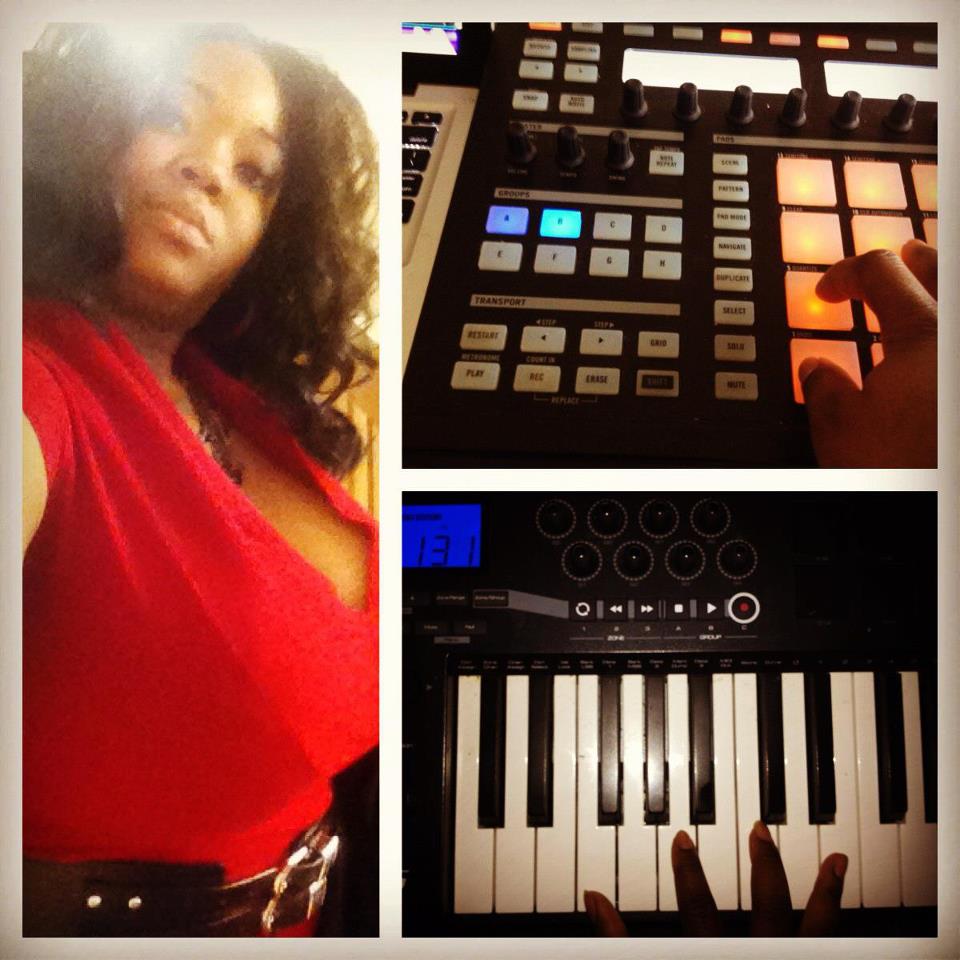
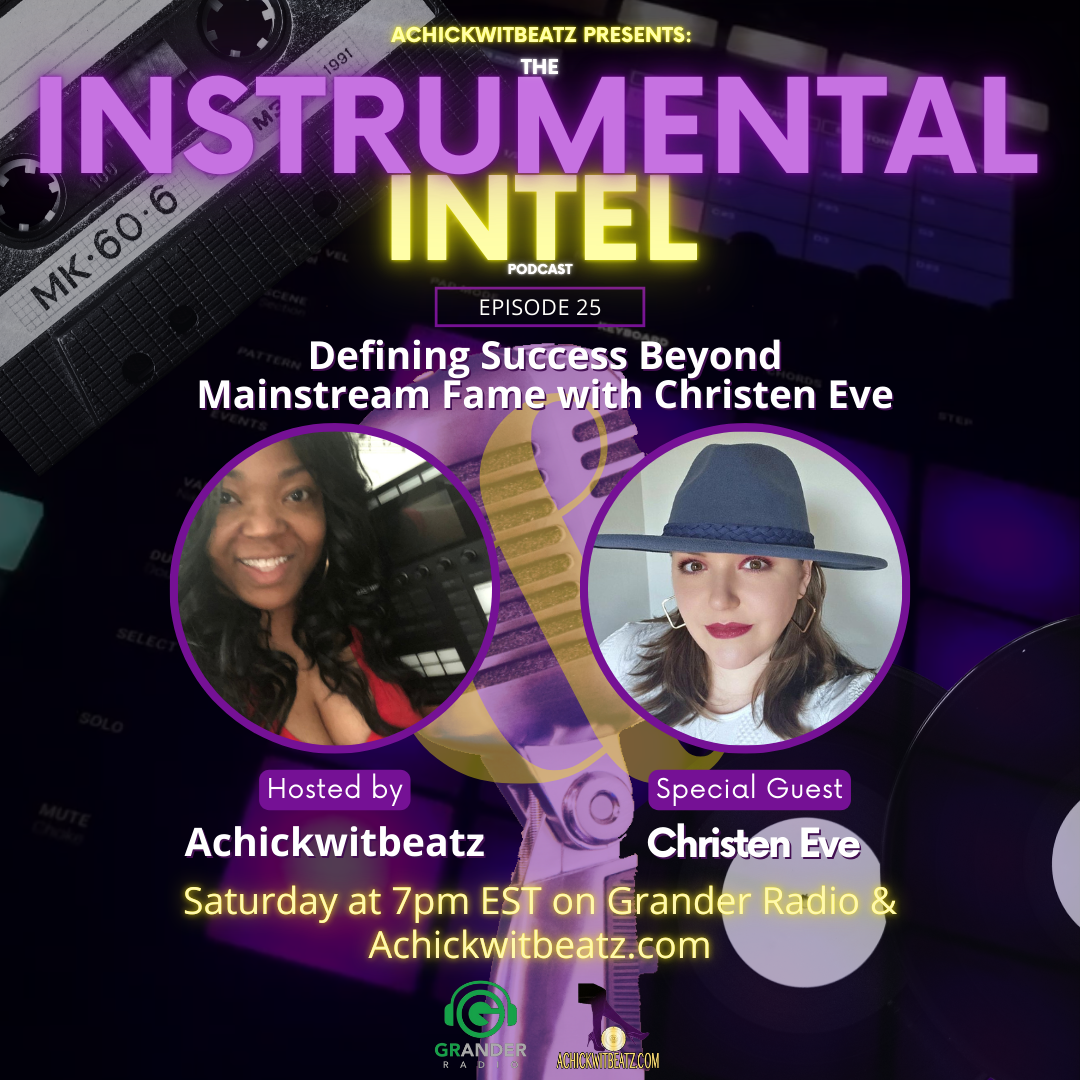






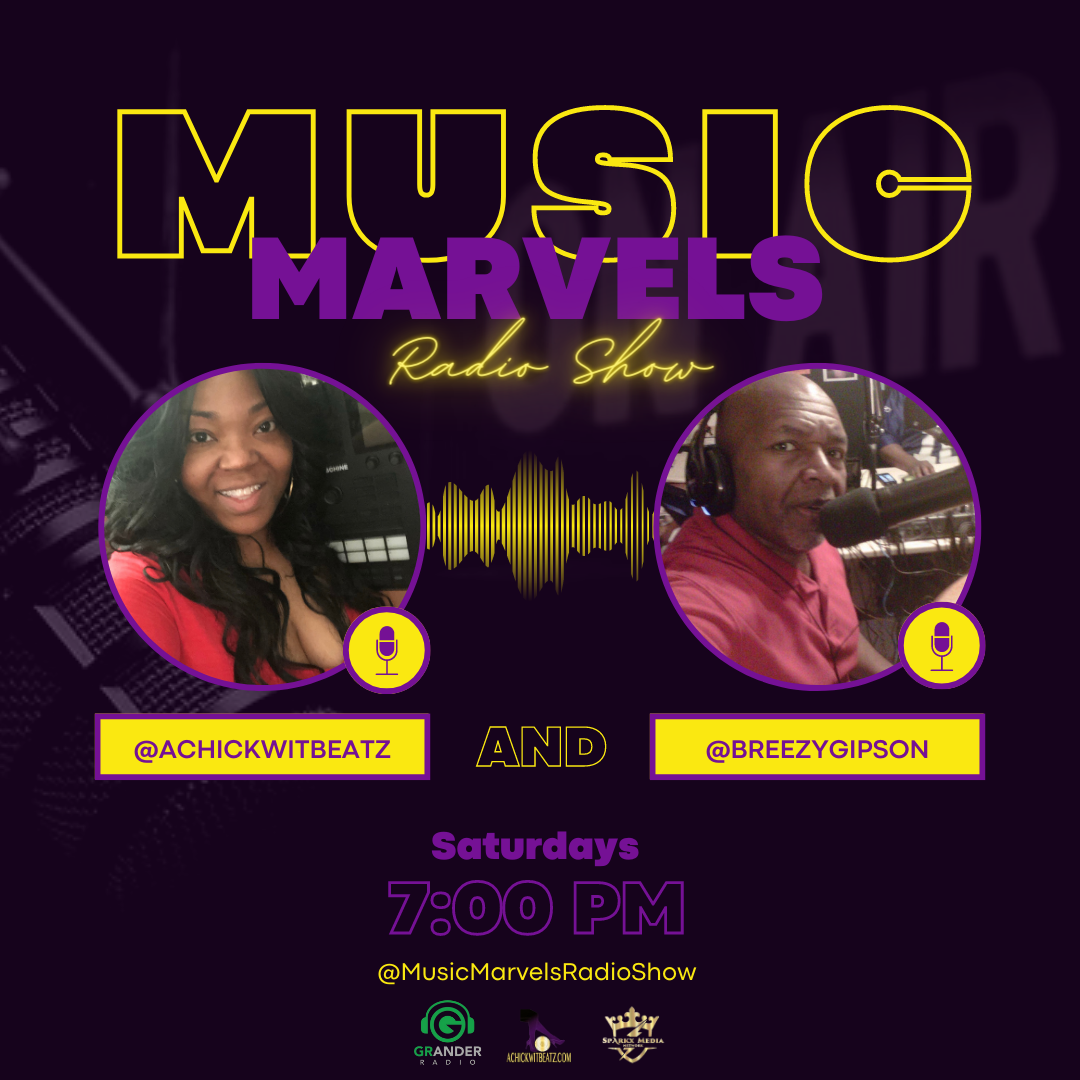
![Hear Here: Achickwitbeatz - Dopamine & Serotonin [Single]](https://images.squarespace-cdn.com/content/v1/52b0b90ae4b0293bfed0d692/1710852808557-EZYGFDIBHLBSIRFOVS1Q/Dopamine+%26+Serotonin.JPG)


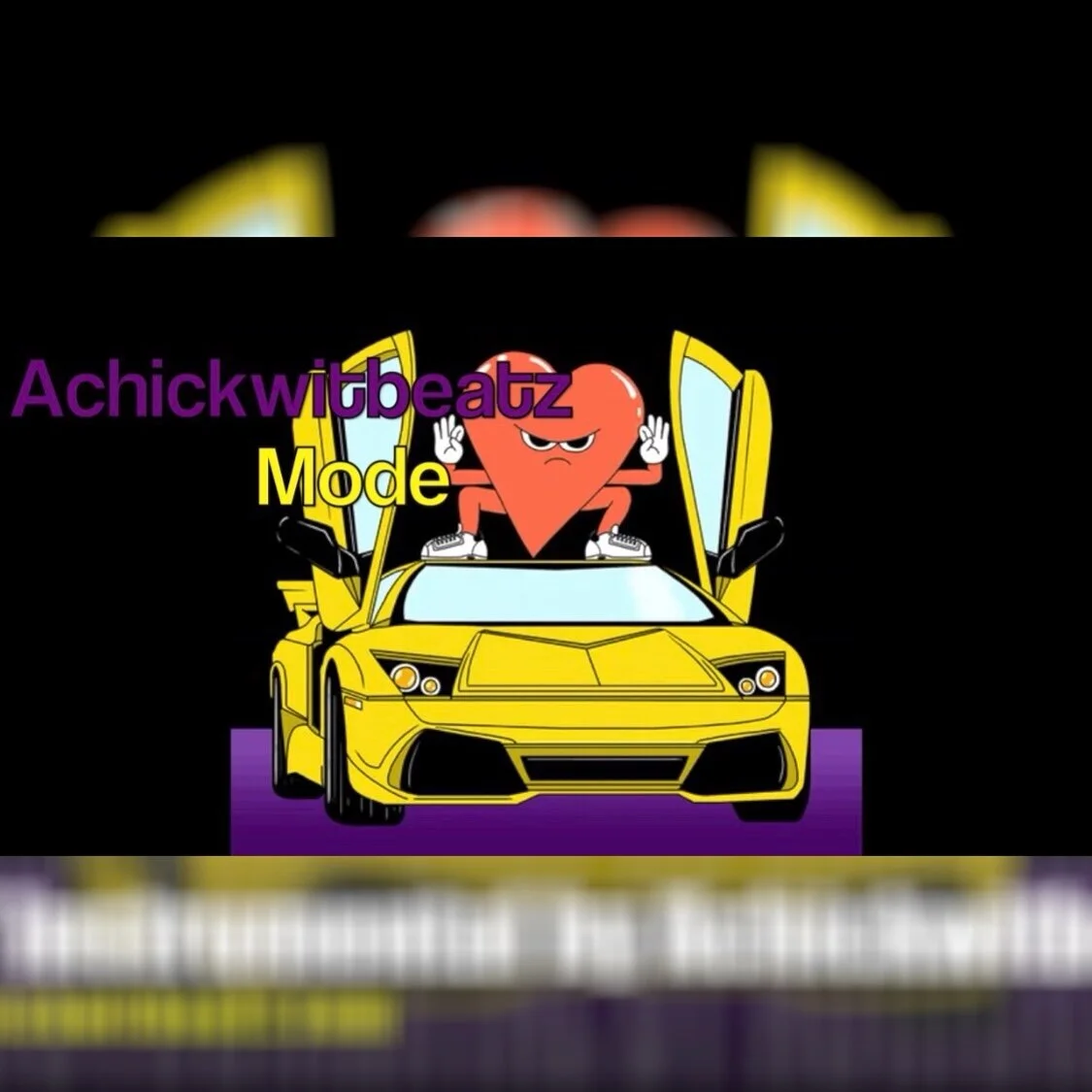
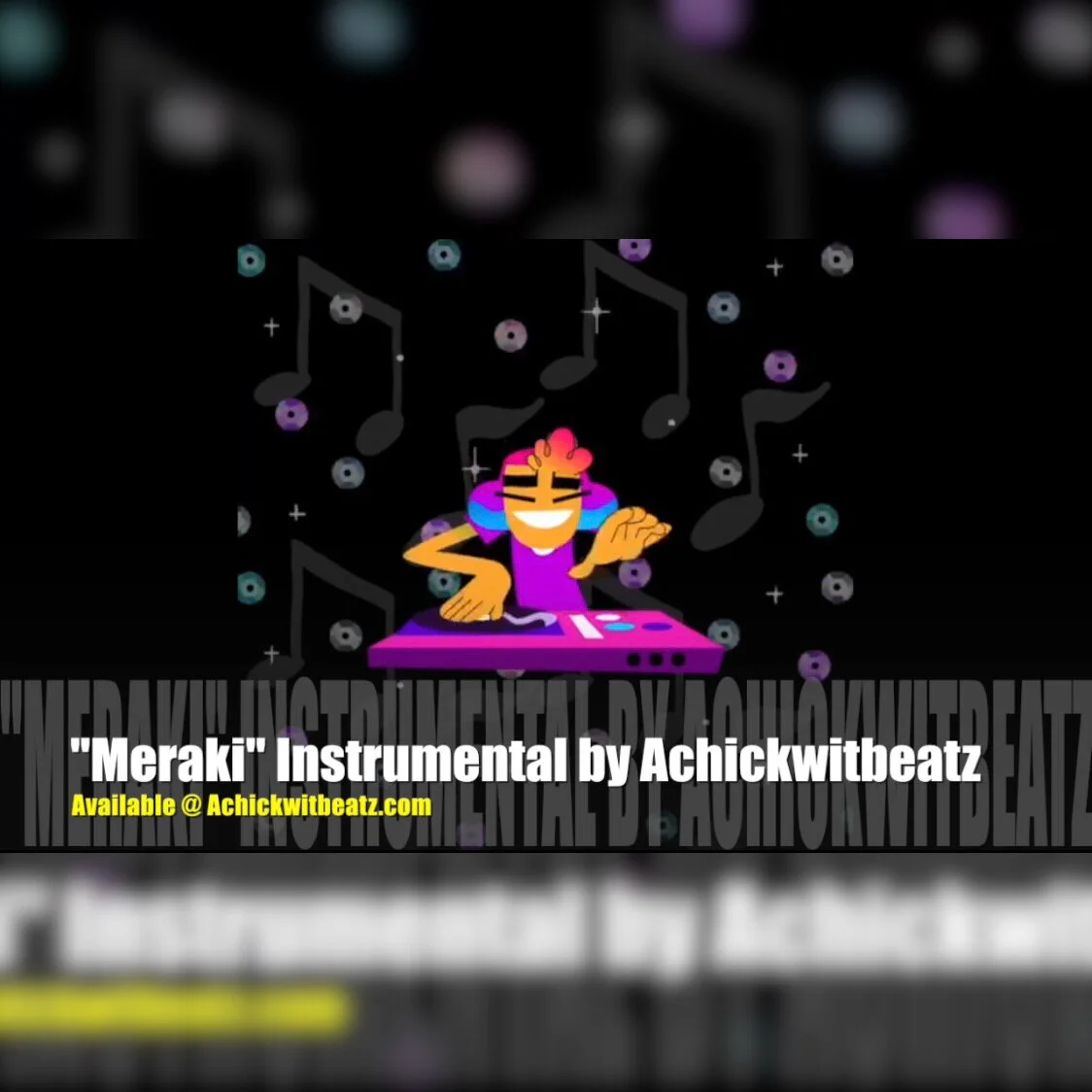





![Hear Here: Dagga Man- "Analytics" [Prod. by Achickwitbeatz]](https://images.squarespace-cdn.com/content/v1/52b0b90ae4b0293bfed0d692/1584638158548-9R55AZLWZIDFJC8LATV6/IMG_2212.JPG)







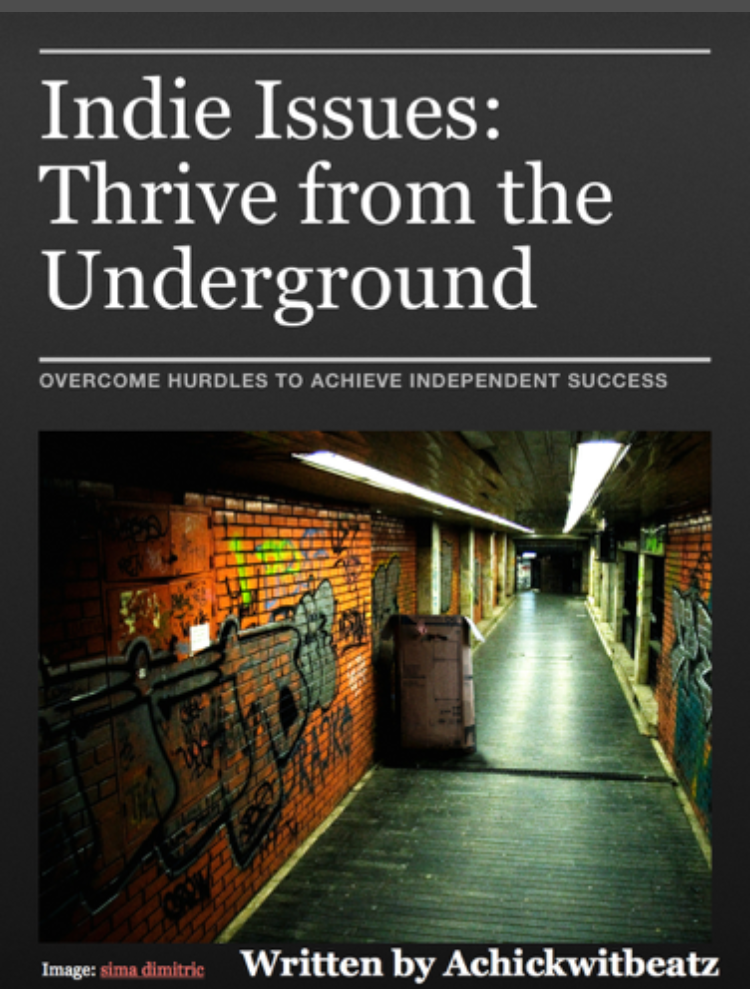
















![Making Music on a Budget [Infographic]](https://images.squarespace-cdn.com/content/v1/52b0b90ae4b0293bfed0d692/1582844361438-3JTE5NT3EL51FHXC0WJI/making-music-on_1929722%25281%2529.jpg)
